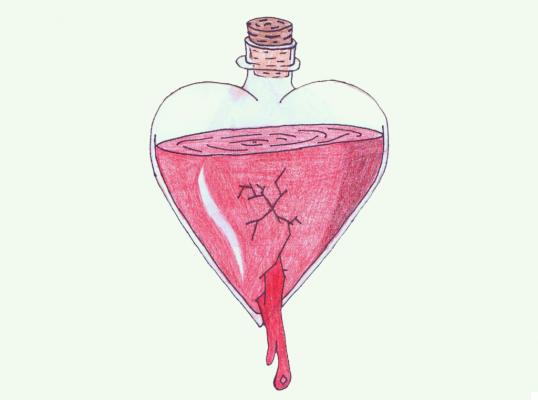
We have all been educated to do everything possible, and the impossible, to help others. It is a concept that we have deeply rooted and which, without a doubt, is commendable. However, sometimes in the act of helping others we can suffer an emotional hemorrhage that ends up exhausting our energy and destroying our psychological balance.
Psychologists know that it is not possible to help those who do not want to be helped. This is why, in some cases, the first goal of psychological therapy is to make the person understand that they have a problem and need help. This is the starting point to work from because without a personal commitment, internal change is practically impossible. The same happens in everyday life. We can only help when the other person accepts our help.
Giving glasses to someone who does not want to see
Helping those who don't want to be helped is like giving a pair of glasses to someone who doesn't want to see. It just won't use them. Chances are he doesn't even value our help, effort or time we've invested, and he might even get annoyed considering our gestures an intrusion into his privacy.
Does this mean that we should throw in the towel when we realize that a person is hurting himself? No!
But we must be aware that our help has limits, limits that the other person often sets. We must learn that despite the many advice the other does not learn faster and that the help we can offer is limited to the help that the other is willing to accept.
It is important to understand that when someone is going through a complicated situation they will usually find it difficult to accept it, so they may need some time to emotionally and rationally process what is happening to them. Only later can he decide to ask for help. Therefore, it is necessary to give him time to look within himself, understand what is happening and ask for help.
While the problem and its solution are obvious to us, they may not be so clear to the other person. This is why, sometimes, offering help means violating the pace and timing of emotional healing, and as we do so, we sink into a debilitating process for ourselves that doesn't make much sense. So how can you help a depressed person?
The right attitude to really "help"
When a person in distress rejects your help, you can feel angry, frustrated, or helpless. But you have to understand that these feelings will not help the other and neither will you. It's about approaching the situation with a different attitude, and for this you will have to:
- Assume that everyone has to learn from their mistakes and overcome their obstacles. We need to stop acting like overprotective parents. We need to understand that everyone has to learn their lessons from their mistakes. As much as we love some people, we can't always carry their "load" or solve problems for them, because growth occurs precisely when the obstacles that life puts before us are overcome.
- Stop thinking that things have to be done in a specific way. On many occasions, this tendency to help stems from the belief that the other person is doing things "wrong", while we believe we know how to do them "well". In fact, everyone has to find their own way of solving problems and developing their coping style. There is no one way to do things so, before offering your help, you should make sure that you have freed yourself from this belief otherwise you probably want to impose your own opinion or point of view, something that is usually not well received and puts the other on the defensive.
What can you do?
- Don't pressure. When a person is not psychologically prepared to seek or accept help, pressing them can have the opposite effect to what you want, causing them to withdraw and withdraw from you. Therefore, the first step is not to pressure.
- Make yourself available. The best way to help someone who doesn't want to be helped is to (discreetly) by their side until they need to talk or decide to ask for help. We need to keep in mind that everyone has to go through a series of stages when they suffer emotional wounds, and there are some where they need a shoulder to cry on.
- Get informed. What worked for you may not be a good solution for the person you want to help. Therefore, it is important to be thoroughly informed about the problem. It is also convenient to encourage the person to talk about the problem so that their perspective can be understood. The best advice comes from empathy, if you offer advice from your position and point of view, your solutions could be perfectly useless.
- Set limits. In some cases, a person in distress can spiral into self-destruction, and if you're not careful, they can drag you along with them. Therefore, it is important to set boundaries because you need to protect your emotional balance if you really want to help each other. Buddhist Pema Chodron once said that "we work on ourselves to help others, but we also help others to work on ourselves", which means that the act of helping to solve a problem also involves us emotionally. , so we will have to decide how to deal with it in the best possible way.
- 564


























